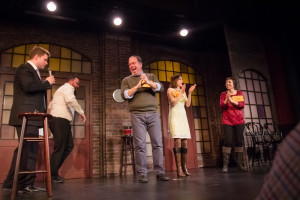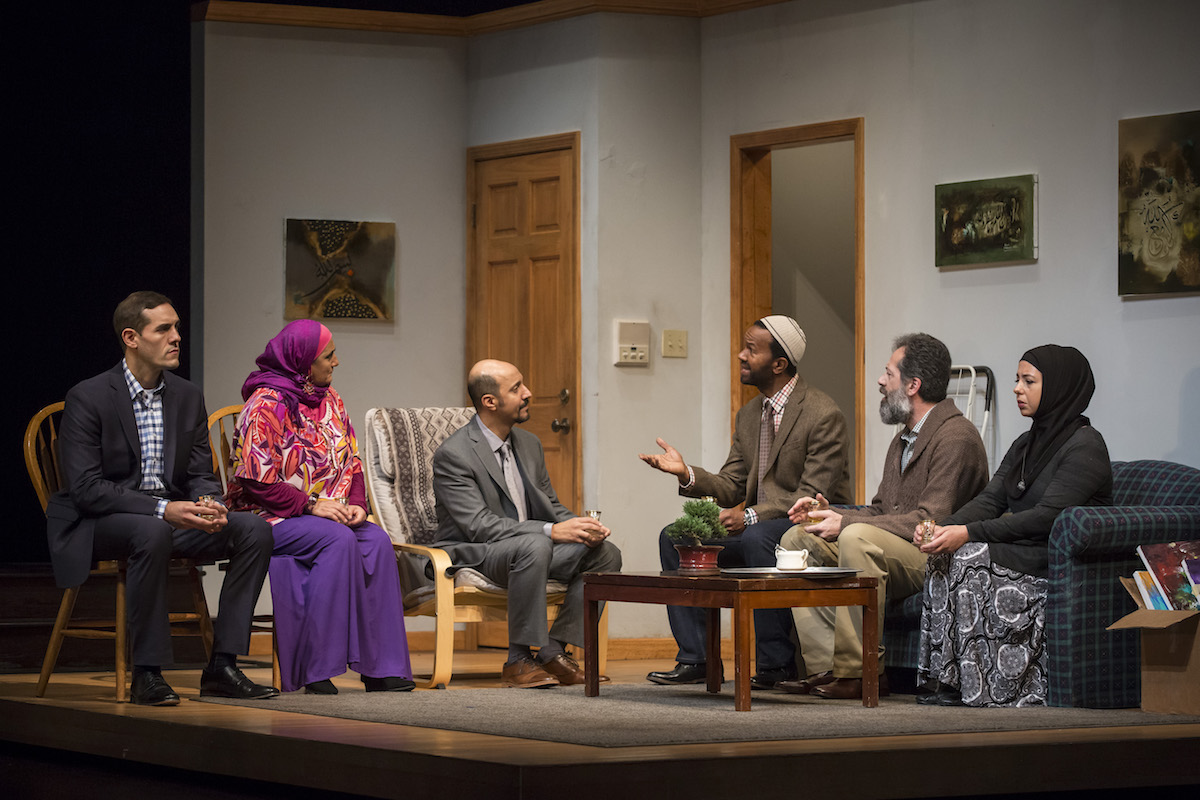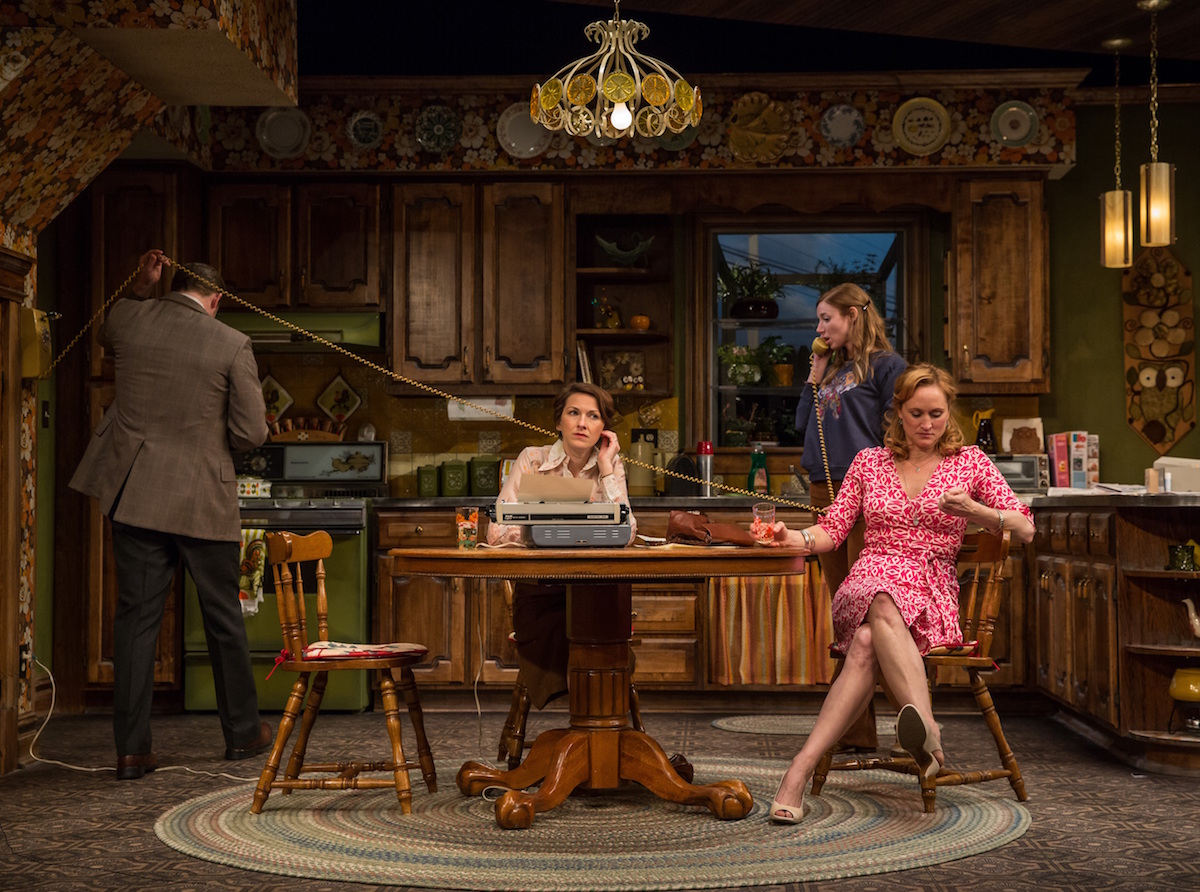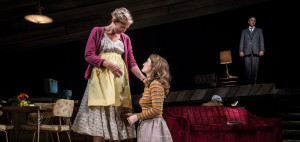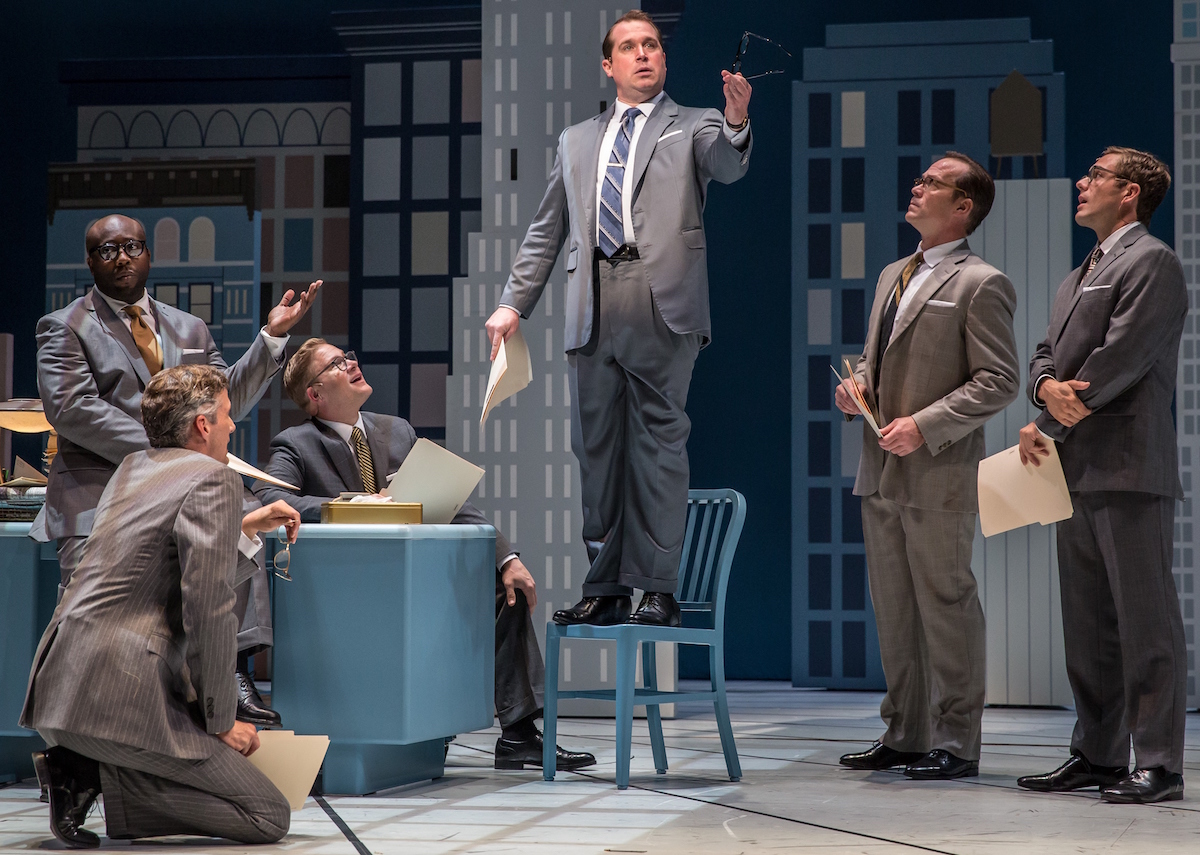First Look review: The Goodman’s relatable “Ask Aunt Susan” explores the virtual need to feel connected
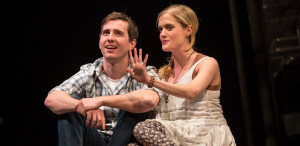
By Amanda Parker
Playing at: Goodman Theatre at 170 N. Dearborn through June 22.
www.GoodmanTheatre.org
Basic storyline: Inspired by Nathanael West’s 1933 novella Miss Lonelyhearts, writer Seth Bockley, the Goodman’s playwright-in-residence and 2009 Ofner Prize winner, introduces Ask Aunt Susan to the stage.
After being involved in a class-action lawsuit for swindling money from Yelp, a young man (Alex Stage) needs a new job to pay his student loans. He’s given an offer by Steve (Marc Grapey), the same disreputable and misogynistic boss who got him in hot water with the scam, and he can’t refuse. He is to assume the identity of advice guru Aunt Susan, a new online equivalent of Ann Landers dreamed up by Steve. Wounded, scared and wronged individuals flock to AskAuntSusan.com, where Aunt Susan dispenses “CliffsNotes Confucianism.”
The website quickly gains popularity as an online safe haven where people can obtain a bit of relief from their problems. And Aunt Susan is behind it all, working from a greasy diner, caught up in his false identity, and greedy in his desire to be needed. He spends every moment in a warp-speed virtual whirlwind of soothing words and saccharine cyber love.
But swamped with emails requiring exhausting responses, Aunt Susan becomes sick of lying about who he is and of being dependent on cyberspace for his own self-esteem. He struggles to climb out of the virtual hole he has dug for himself, but it isn’t easy while dealing with his ultra-Zen, analog-loving girlfriend Betty (Meghan Reardon), his boss’ adulterous wife Lydia (Jennie Moreau), and a wacky, blackmailing waitress in Colorado (Robyn Scott).
 What stood out: Ask Aunt Susan is genuinely relatable. The play starts with these words displayed on a screen: “Are you alone, afraid, suffering, angry, anxious, unloved, hiding, adrift?” If you’re sitting in the audience and not completely lying to yourself, you’re going to answer a silent “yes” in your head to at least one of these things.
What stood out: Ask Aunt Susan is genuinely relatable. The play starts with these words displayed on a screen: “Are you alone, afraid, suffering, angry, anxious, unloved, hiding, adrift?” If you’re sitting in the audience and not completely lying to yourself, you’re going to answer a silent “yes” in your head to at least one of these things.
On stage, we watch as people who feel the same things we’ve felt reach out to Aunt Susan, then receive fake, digital love through their computer screens, eventually becoming hooked on the instantly gratifying reassurance that someone is listening. The perils of the internet quickly become evident, as these troubled people crave more and more positive vibes from a false source.
Ask Aunt Susan makes us think about the use of technology as an often faulty coping mechanism, and offers up some less techy and more human options for fulfillment along the way.
Final thoughts: After seeing Ask Aunt Susan, you’ll probably leave with some questions about your own life. Where do you turn to for gratification? How has your connection to all things cyber affected you? Could you unwittingly be taking part in a shakedown scam masterminded by your criminal boss?
Living in a society so tech-reliant, it’s easy for the audience to understand Aunt Susan’s plight. We’re familiar with the struggle to balance the technological and analog aspects of our lives, which makes it natural to feel connected with the characters.


